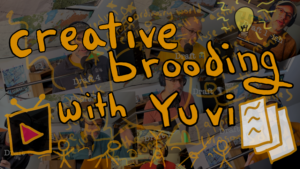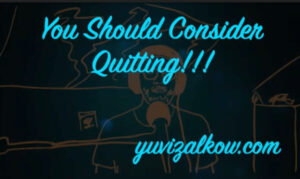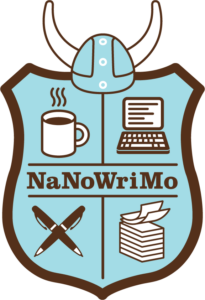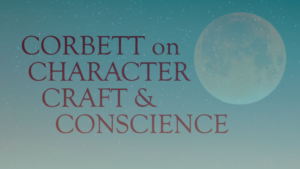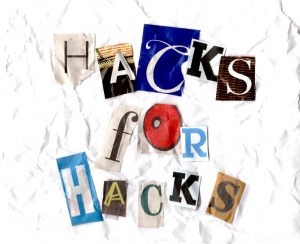Humor
I used to think that it was enough to just call it “draft 3” and dig in without much planning. But something I realized along the way is that it works way better for me if I’m explicit about the purpose of each draft, of each pass through each project I’m working on. This is particularly important for book-sized projects, but I also like this approach for shorter writing projects, and for my videos, and really anything else that requires multiple passes to complete. The purpose is sometimes vague, like for a first draft, it might be: “what the hell is this thing about?” But for some of the middle drafts, it can be very specific: “Nail down the POV for Kitty” or “Fix that crappy dialogue” or “Follow through with that pocket watch I introduce in Chapter 1.” When I discover issues unrelated to the current purpose, I add it to a running list and get back to the current agenda. Though I’m honestly not as strict about this as it might sound—sometimes I cheat a little, especially for small issues. Sometimes, the new issue is big enough or impactful enough that I need to readjust the whole plan. But it still helps me (and keeps me less freaked out!) to have an explicit purpose for each round.
ANYWAY, here is my video explanation of this idea (which involved many boring wardrobe changes)…
What about y’all? Do you have a specific plan for each draft of your writing? Or do you keep it looser and more flexible than this?
Read More
Warning: Hacks for Hacks tips may have harmful side effects on your writing career, and should not be used by minors, adults, writers, poets, scribes, scriveners, journalists, or anybody.
This holiday season, give yourself the gift of lowered expectations by making some Old Year’s resolutions.
What are Old Year’s resolutions? Let’s start by talking about what they’re not. I’m not suggesting you scramble to finish the New Year’s resolutions before December ends, nor am I asking that you go back in time to cross them off your list.
Instead, all you have to do is resolve to do things you’ve already done. For instance, I resolved to finish this very column before the end of the year, and here I am keeping that resolution. A champagne toast to me!
What if I’ve already told people about my resolutions?
Many writers make the rookie mistake of sharing their resolutions with others in the name of transparency and accountability (commendable but foolish), or perhaps to try and impress someone at a NYE party by talking about finishing your book in an effort to get their phone number (totally worth it). Whatever the reason, you most likely have several personal enemies and professional rivals who would cackle with glee to see you fail in public, and Old Year’s resolutions help you find some plausible conditions to declare victory.
First, find your old list of New Year’s resolutions. You may have wrote them on a napkin, typed them into a neat list and posted it above your computer monitor so you could see it every day, or worst of all, posted it on your social media in the hope that you could shame yourself into productivity. Well, good news, nobody’s reading your blog anyway, so they won’t notice if you tweak your resolutions just a bit.
Instead, you take your New Year’s Resolutions that you made at the beginning of the year and amend them slightly, like how the Bill of Rights modified the U.S. Constitution. And these Old Year’s Resolutions could end up being just as—if not more!—important. Let’s look at some examples:
Read MoreSorry about that title… I didn’t mean it to sound confrontational. It’s really just my internal monologue. Because I consider quitting. I consider quitting all the time. Every day. This applies both to my specific writing projects, and also to writing in general. And with all my other creative endeavors. But I don’t mean to say that I give up on everything. I just consider it. Because, for me, it really is worth pondering whether each crazy venture is worth it. I even considered quitting this video a few times…
Do you think about quitting? Do those thoughts reflect a weakness, or an important part of your creative process?
Read MoreWarning: Hacks for Hacks tips may have harmful side effects on your writing career, and should not be used by minors, adults, writers, poets, scribes, scriveners, journalists, or anybody.
As the years go by, I often think back to my early years as a writer. I had so much energy! So much passion! So many bad ideas! If I could send a letter back in time, I could tell myself when to avoid wrong turns and when to stay the course. I could tell myself to buy Bitcoin. Alas, I can’t go back in time. I can, however, impart the wisdom I’ve learned to the next generation of writers.
On Authenticity
Always be true to yourself. However, if you ever get the urge to be a big phony, remember that you are a writer and a creator, and therefore can create myriad personas and pen names. You’re not being inauthentic, you’re being true to those other versions of you, the ones who are richer and more interesting.
On Writing What You Love
Write what you love.
On Writing What You Hate
Write what you love long enough, it will gradually (and inexorably) fall into this category.
On Stress
Stress will be your constant companion as a writer. If you don’t have stress, you are probably not pushing yourself hard enough, which is actually not the worst idea. The world will be fine without your writing. Old writers like myself are so very tired, and we can’t compete with your youthful energy.
On Risk
I’m so proud of the risks you’re taking. And so fascinated that you thought this was good. Wow, this idea of yours is something you want to spend the next two years writing, huh? That’s just so very brave! I sure wish I had the courage to do something as awful as that!
On Criticism
People will criticize you. Some of it will be valid, some will not. The important thing is to identify which is which. You can safely ignore any criticism unless it comes from someone who:
On Sucking
Give yourself permission to write poorly. It’s not failure, it’s practice! Save your bad writing so that you can one day look back on how far you’ve come, and we envious nobodies can mock you for it when we want to take you down a peg or two.
Read More
Warning: Hacks for Hacks tips may have harmful side effects on your writing career, and should not be used by minors, adults, writers, poets, scribes, scriveners, journalists, or anybody.
National Novel Writing Month (sometimes referred to as “NaNoWriMo” or “November”) is just around the corner, which means it’s time to fool yourself into thinking you can write your literary opus in a mere thirty days. That’s a lot of work, especially considering you’ve got a lot of eating to do on Thanksgiving and a lot of mall doors to bust down on Black Friday. I know you can do it, though. In fact, you can finish your novel in November easily by using one weird trick. You see, NaNoWriMo is much easier if you take a shortcut, by which I mean, take a longcut: start your novel in early October and pretend you wrote it in only thirty days.
That’s right, I want you to cheat.
Welcome to NaNoCheatMo!
Here’s how to do it:
There are many good reasons to participate in NaNoCheatMo, including but not limited to:
Read MoreA little less than a year ago I wrote a post here at Writer Unboxed on Black Comedy as a form, hoping to clarify the definitional ambiguities that often blur the lines between it and satire, farce, and anything else deemed “darkly comic.”
Today I want to move that conversation along a bit and ask a question that’s been nagging at me for some years: Will there ever be an iconic Black Comedy for the war on terror? Is such a thing desirable, let alone possible?
To consider the problem, let’s revisit one of the most improbably successful Black Comedies of all time:
The Soviet ambassador has just informed the American president and his advisors that their inadvertent attack on his country will trigger a worldwide nuclear holocaust due to the irrevocable effects of a Communist Doomsday Machine: a series of buried nuclear devices controlled by computer and scattered around the world, each jacketed with a deadly radioactive contaminant known as “Cobalt-Thorium G.”
One of the president’s advisors, a former Nazi—Peter Sellers reportedly based his portrayal partly on both Werner von Braun and the young Henry Kissinger—confronts the Russian ambassador on the obvious point that deterrence requires disclosure:
Strangelove
Yes, but the… whole point of the doomsday machine… is lost… if you keep it a secret! Why didn’t you tell the world, eh?
De Sadeski
It was to be announced at the Party Congress on Monday. As you know, the Premier loves surprises.
This exchange from Stanley Kubrick’s Dr. Strangelove, in addition to several others in the film, reveals the script’s core comic premise: the chasm that exists in an era of nuclear holocaust between the mundane, petty, foolish nature of human motives set against the potentially cataclysmic consequences of our actions.
It’s hardly a new idea. The lampooning of human pretense and pomposity goes back at least as far as Aristophanes, and forms one of the central conceits of comedy. It dovetails with the observation that laughter provides a safe release for the constant if unconscious anxiety we feel due to existential dread and societal shame. Our pretensions are masks we wear to rise above, or at least deny, our fears. Comedy pulls away the mask so that, at least for a moment, the sources of that dread and shame can be revealed, addressed, confronted.
The trick, to the extent there is one, is to walk that fine line between addressing the sources of our fears and merely stripping them bare. The reason many horror films devolve into inadvertent self-parodies can be traced to a mishandling of this tipping point between sympathetic revelation and naked exposure.
It is, admittedly, a difficult line to walk, a fact made all the more apparent when one returns to the comic premise of Dr. Strangelove, the potentially disastrous gap between human desires and their consequences, and considers it in the context of the War on Terror. It’s a clearly relevant question—but does that justify any approach to an answer?
A few randomly selected incidents to drive the point home:
Read MoreWarning: Hacks for Hacks tips may have harmful side effects on your writing career, and should not be used by minors, adults, writers, poets, scribes, scriveners, journalists, or anybody.
Enjoying your long Labor Day weekend? I sure as hell hope not.
Writers labor on Labor Day. This is the weekend you’re going to regain all the writing momentum you’ve lost. No matter how far behind you are on your goals, you’ll be amazed at how easy it is to convince yourself that you can atone for it all if you really buckle down over a weekend that is one whole day longer than any other weekend.
Does this sound unrealistic? I’m sorry, but it’s time for some tough love. You’ve spent the last year and a half making excuses like these:
I’ll bet you think that you deserve a break now, huh? The long Labor Day weekend has arrived not a moment too soon, you say, and you finally have a moment to catch your breath.
You fool. You rube. Writing is your break. This is your purpose, your calling, remember? You want rest and relaxation? The best way to “relax” is spend the “rest” of your time off hammering out 5,000 words a day to make up for all that you didn’t get done while you were trying to hold it together.
Warning: Hacks for Hacks tips may have harmful side effects on your writing career, and should not be used by minors, adults, writers, poets, scribes, scriveners, journalists, or anybody.
Everybody loves the smash-hit TV show Ted Lasso from Apple TV+. The ongoing saga of Jason Sudeikis as an aw-shucks football coach from Kansaz who gets hired as a Premier League soccer coach in London is equal parts hilarious and heartwarming. Expertly performed, directed, and written, Ted Lasso is a masterclass of writing lessons for everyone from the most famous of authors to the hackiest of hacks. I’m a little bit of both, so here’s what I learned from watching Ted Lasso.
I’ve spent virtually my entire life in the entertainment business, starting as a child in local amateur theater, then professional music, then this whole crazy book-writing thing. As different as these disciplines are, they have some core traits in common, chief of which is the need to please an audience. After all, if nobody comes to your show, or listens to your music, or reads your book, aren’t you just shouting into the void?
So a core trait that each successful artist has in common is that they do please their audience. The really successful ones please a really BIG audience.
But it’s never everybody.
Just as not everybody likes chocolate better than vanilla (because the ones who don’t are sadly wrong, but I digress…), not every artistic effort is going to resonate with or appeal to everybody. I think we all know this, deep down, but it’s helpful to remember that the most successful artists are often the ones who evoke the strongest reactions – but those reactions can actually be positive OR negative.
Don’t believe me? Look at the “Best Dressed” or “Sexiest” lists in some popular magazines or social media, and then look at the “Worst Dressed” and “Butt-Ugliest” lists (okay, there’s probably a gentler name for that last one, but let’s be honest: that’s what they’re implying). You’re going to find many of the same names on BOTH lists. Think about artists like Madonna. Lady Gaga. Adam Driver. Kanye West. People either love them, or they hate them. Rarely do these public figures evoke a “meh” reaction.
Um, no hugging, please.
My point is that some of the most successful artists have a truly polarizing effect. And I submit that’s a good thing. Something to aim for, even.
Striving to be inoffensive
I think it’s safe to say, many of us do not aim to polarize – either in real life, or with our fiction. Instead, we play it safe, tiptoeing around sensitive topics to avoid alienating or offending people. And this practice is reinforced constantly, when we see people complaining that entertainers and artists shouldn’t try to impose their opinions on their audience. “Just entertain me,” we are told, “don’t tell me what you believe, or what you think I should believe.”
I saw an example of this just recently, when a musician I’m acquainted with on Facebook posted in support of a regional politician he apparently admires. Personally, I hate the guy he supports, but it’s his FB page, not mine, so I stayed out of the conversation.
But lots of people didn’t. They chimed in from both sides, either praising or deriding his choice. But another sentiment quickly began to surface, which I’d been waiting for. Below is a paraphrased example:
“No matter what your political stance, it is never EVER a good idea to promote it when you are an entertainer, or in business! Never!”
Think about what this comment says to every artist – and even every business owner. In short: How dare you have an opinion? Your sole functions are to entertain me or serve me – and not offend me.
Let’s be honest: Many of us may have felt the same way when seeing an artist or celebrity voice a provocative or controversial […]
Read More*sense of humor required
Warning: Hacks for Hacks tips may have harmful side effects on your writing career, and should not be used by minors, adults, writers, poets, scribes, scriveners, journalists, or anybody.
Writers talk a lot about killing your darlings—those wonderful ideas and sentences that you just love, but you cut them because you can’t make them work in your story. But they’re just so great! Do you really have to cut them? Unfortunately, yes. You can’t spell IDEA without DIE, and there’s no better place for your ideas to perish than in your idea file.
What is an idea file, you ask? Well, it’s pretty self-explanatory, but I’ll explain anyway so you won’t know I’m judging your stupid question: An idea file is a document (or a folder containing documents) in which you store ideas you haven’t yet fleshed out, paragraphs that don’t fit, flourishes that sound great but disrupt the flow of the story, and writing that’s obviously crap but you can’t bring yourself to delete because you have weird attachment issues. (If that last bit sounds judgmental, it is, but take solace that I’m judging myself most harshly of all.)
What I’m saying is you don’t really have to kill your darlings. Simply cut and paste them into a different document! Your idea file will make you a better editor. It’s easier to wield the knife when you know the trimmings can be re-attached any time you like. But if a month goes by and you’ve forgotten about the bits you cut? They probably weren’t necessary in the first place. You’re not killing your darlings, you are simply entombing them forever in a sub-folder on your hard drive, like walling up your best frenemy in your catacombs next to the amontillado.
Read MoreA few months ago I told WU’s Therese Walsh that I wanted to write about writing while pregnant. It’s one thing to write when you’re feeling your best (or just feeling normal); it’s another thing altogether to write when you feel as if another being has taken over your body (it has). She challenged me to come up with an angle that would apply to the larger WU community. It took me a minute, but I think I’ve figured it out.
When you’re pregnant you get a lot of unsolicited advice. Even people who don’t have kids, who have never given birth, offer words of wisdom. People tell you what to eat, to exercise, or not to exercise, and that you should start planning for the next one. They tell you what to feed the baby, when to feed the baby, what kind of detergent to use on their clothes. Digesting all this advice has led me to get very good at deflecting conversations I don’t want to engage in.
We get all kinds of unsolicited advice as writers: what we should write, when we should write, and how we should approach our careers. Some of it comes from fellow writers, but a lot of it comes from individuals who have never attempted to write a few paragraphs.
The next time someone gives you unsolicited writing advice I challenge you to try these tactics that have worked for me as I’ve navigated the minefield that is pregnancy and baby advice. For example purposes, let’s say someone tells you to write the next Harry Potter. The next time you hear this, below are some responses for you to try:
Pretend you didn’t hear the person and change the subject. This tactic is a little rude, but effective. Instead of addressing the writing advice ask, “How’s [insert hobby of theirs] going?” Or say, “We’ve had [horrible/awesome/unexpected] weather, haven’t we?” Most of the time people will take the hint.
Bore them with facts and data until they change the subject. For example: did you know that over 2 million books are published every year? Statistically, even if I were to write the next Harry Potter it would have a 0.0005% chance of becoming a bestseller and turning into a theme park. My agent says…you get the idea. Just keep going until their eyes glaze over.
* sense of humor required
Warning: Hacks for Hacks tips may have harmful side effects on your writing career, and should not be used by minors, adults, writers, poets, scribes, scriveners, journalists, or anybody.
Despite all of your big talk about having lots and lots of writing time, you just couldn’t pull it together to finish your book. It’s okay to feel disappointed, but may I suggest you instead avail yourself of one of these handy, bulletproof excuses that will fend off any judgement from your writers group, your readers, and most importantly, yourself. Let the enabling begin!


